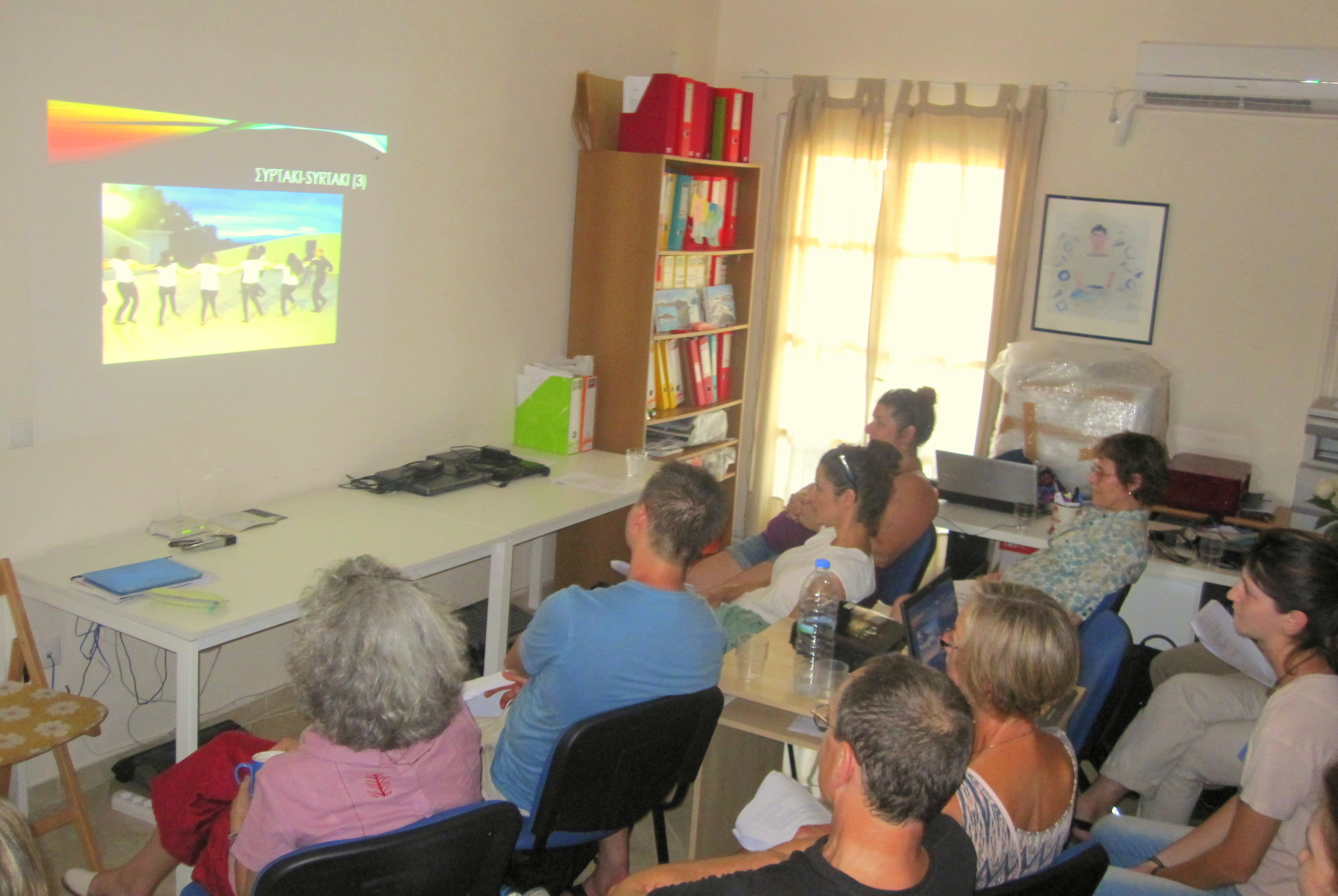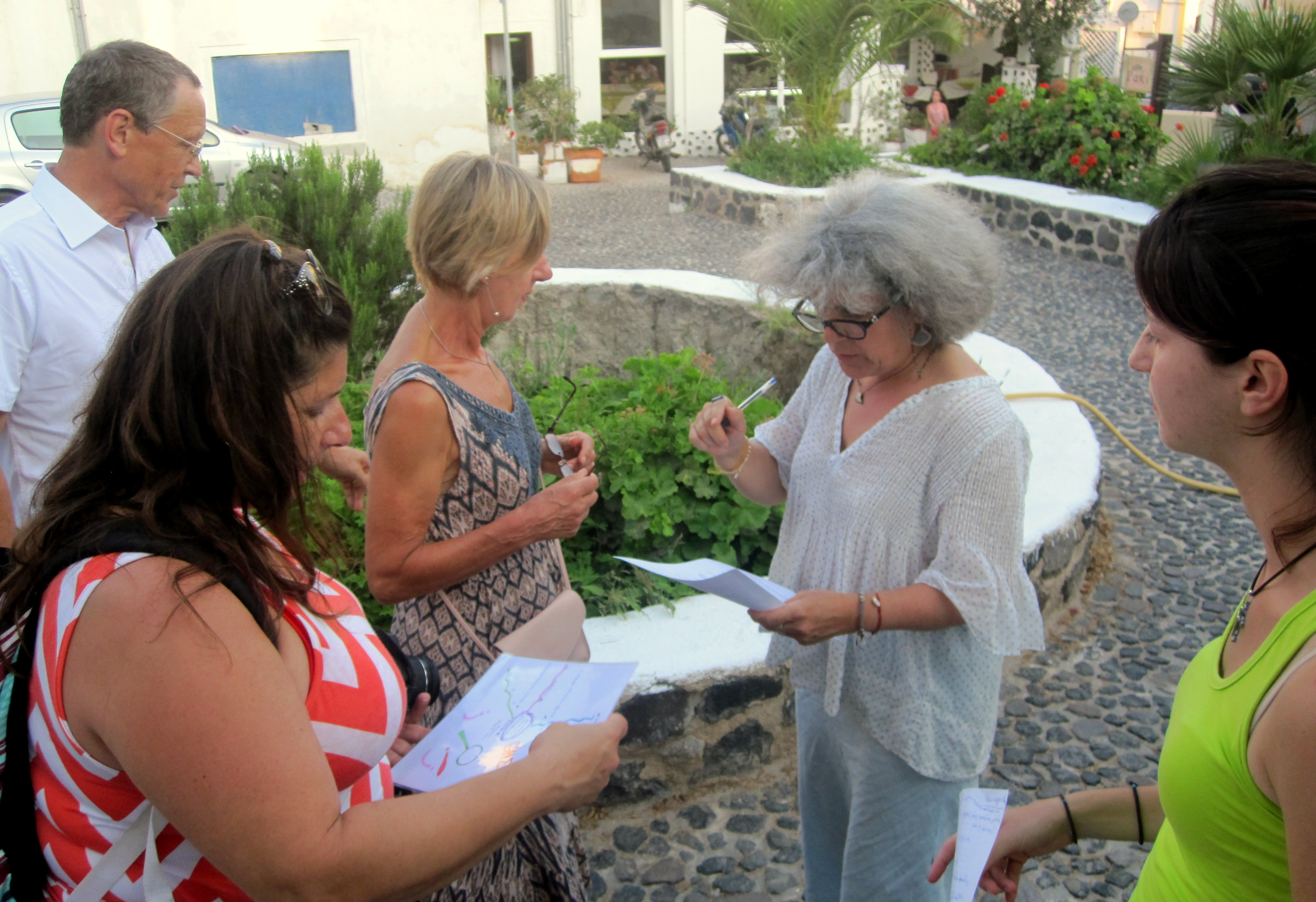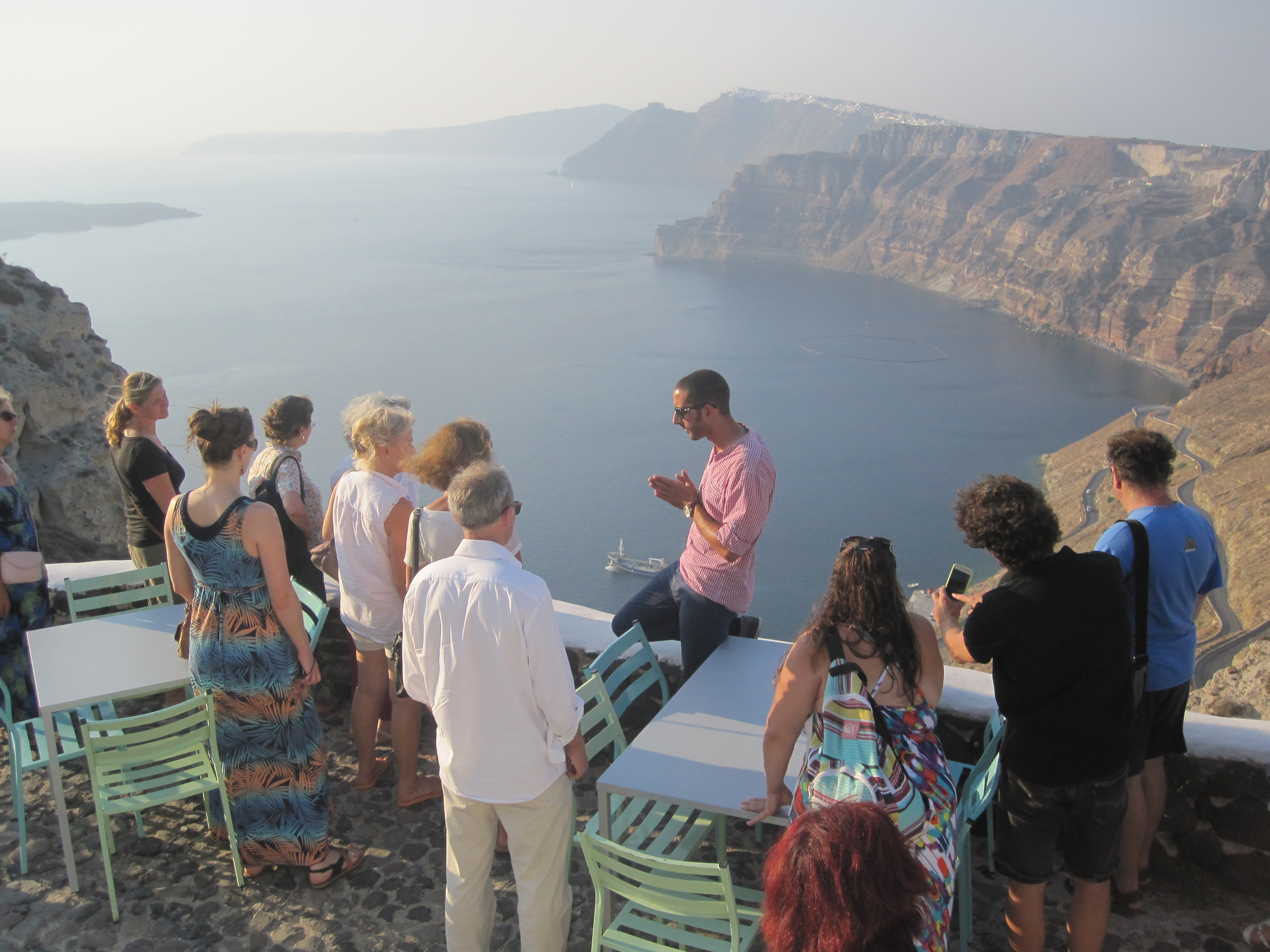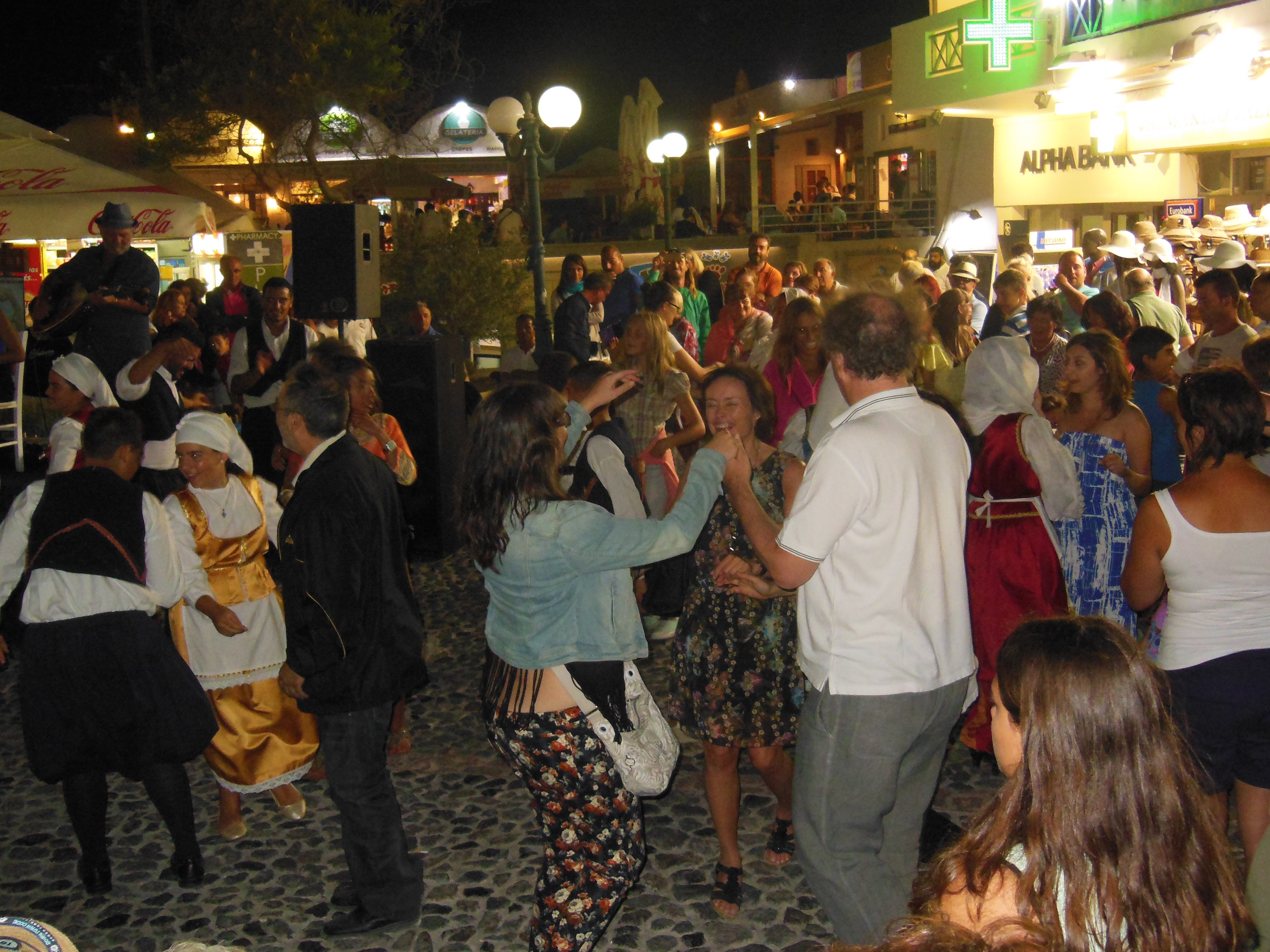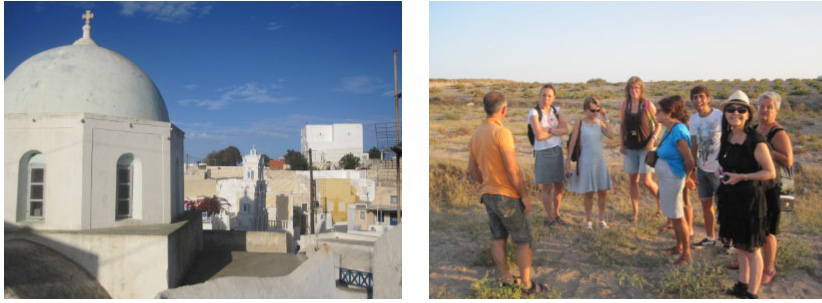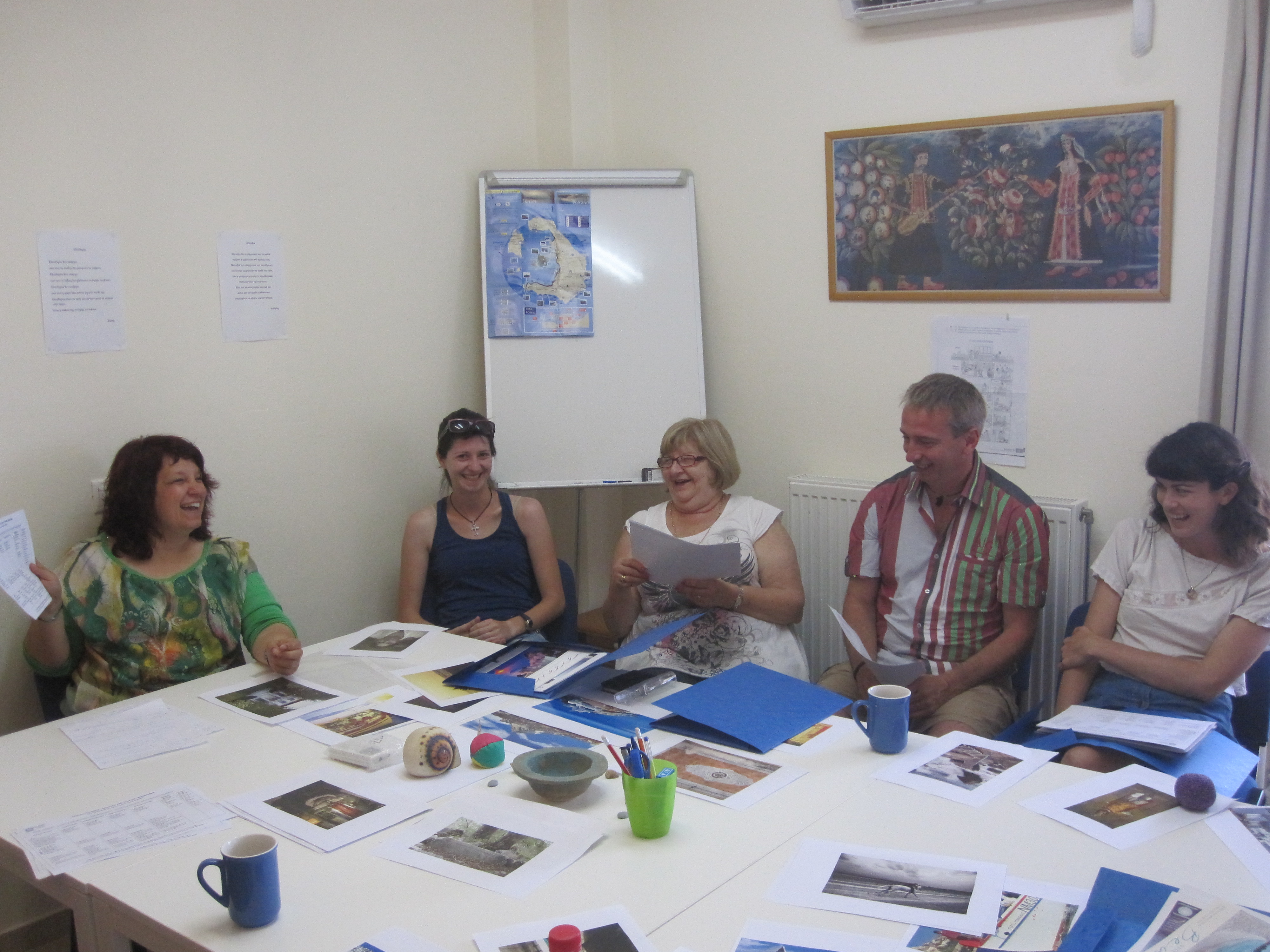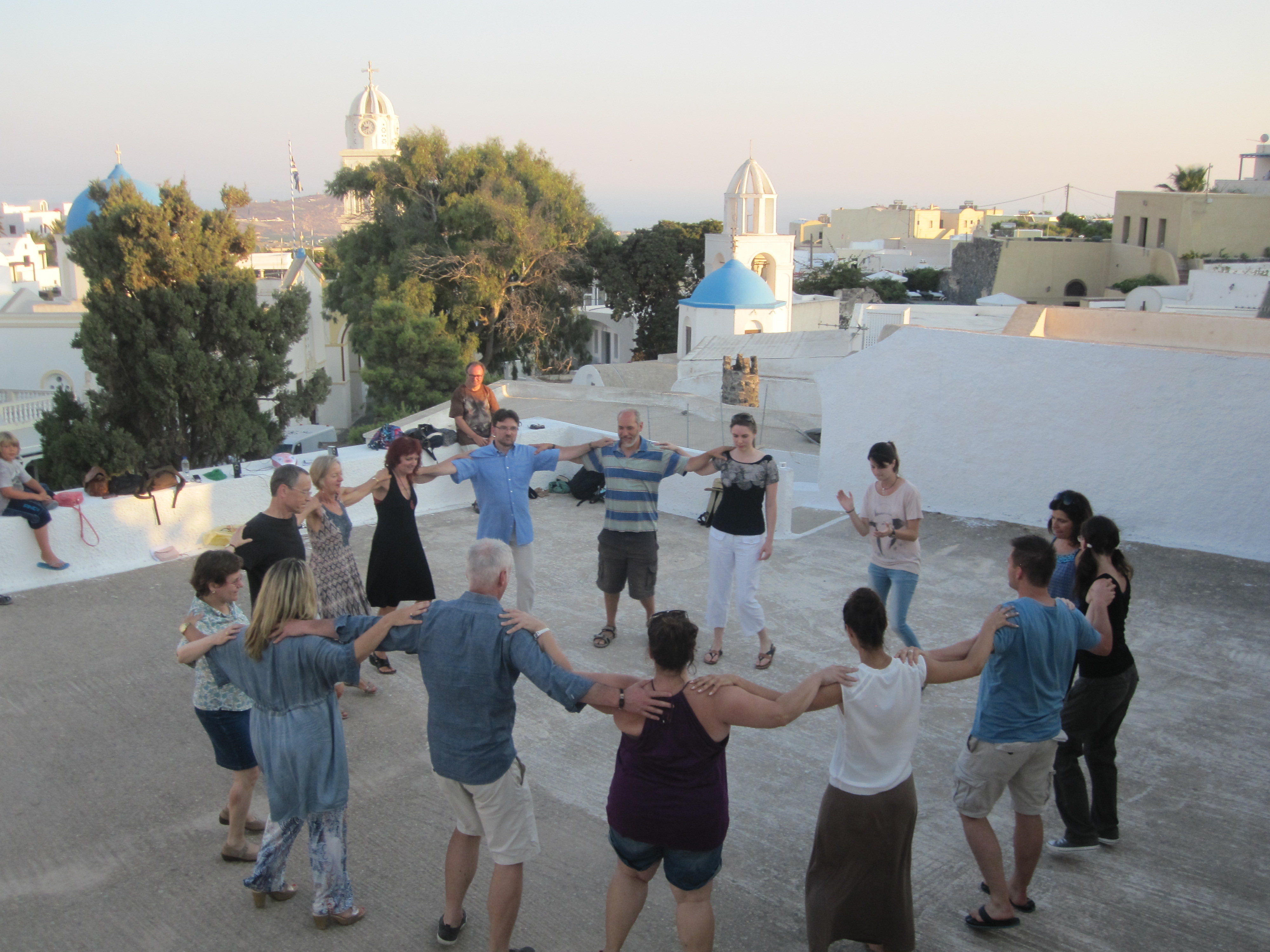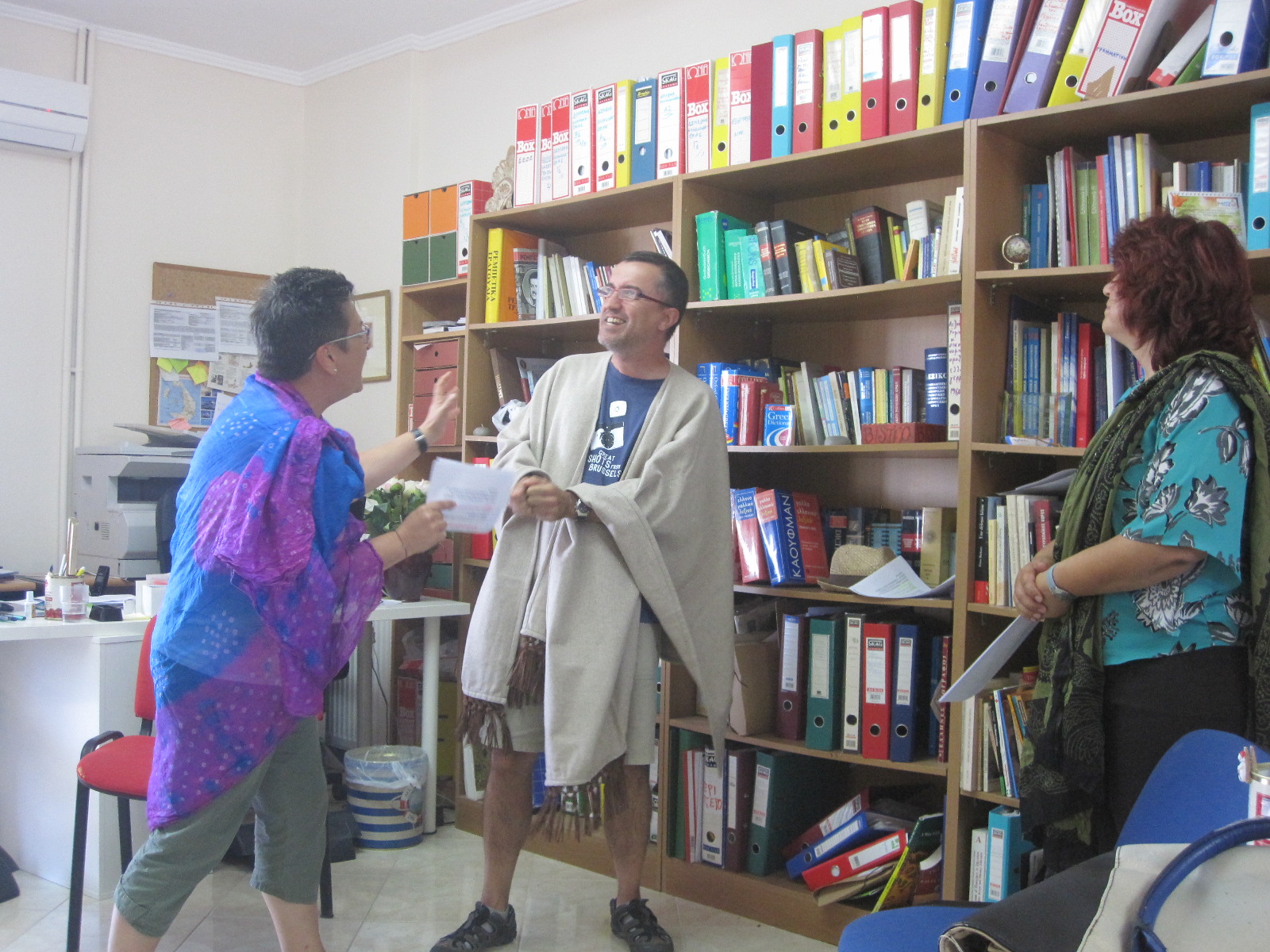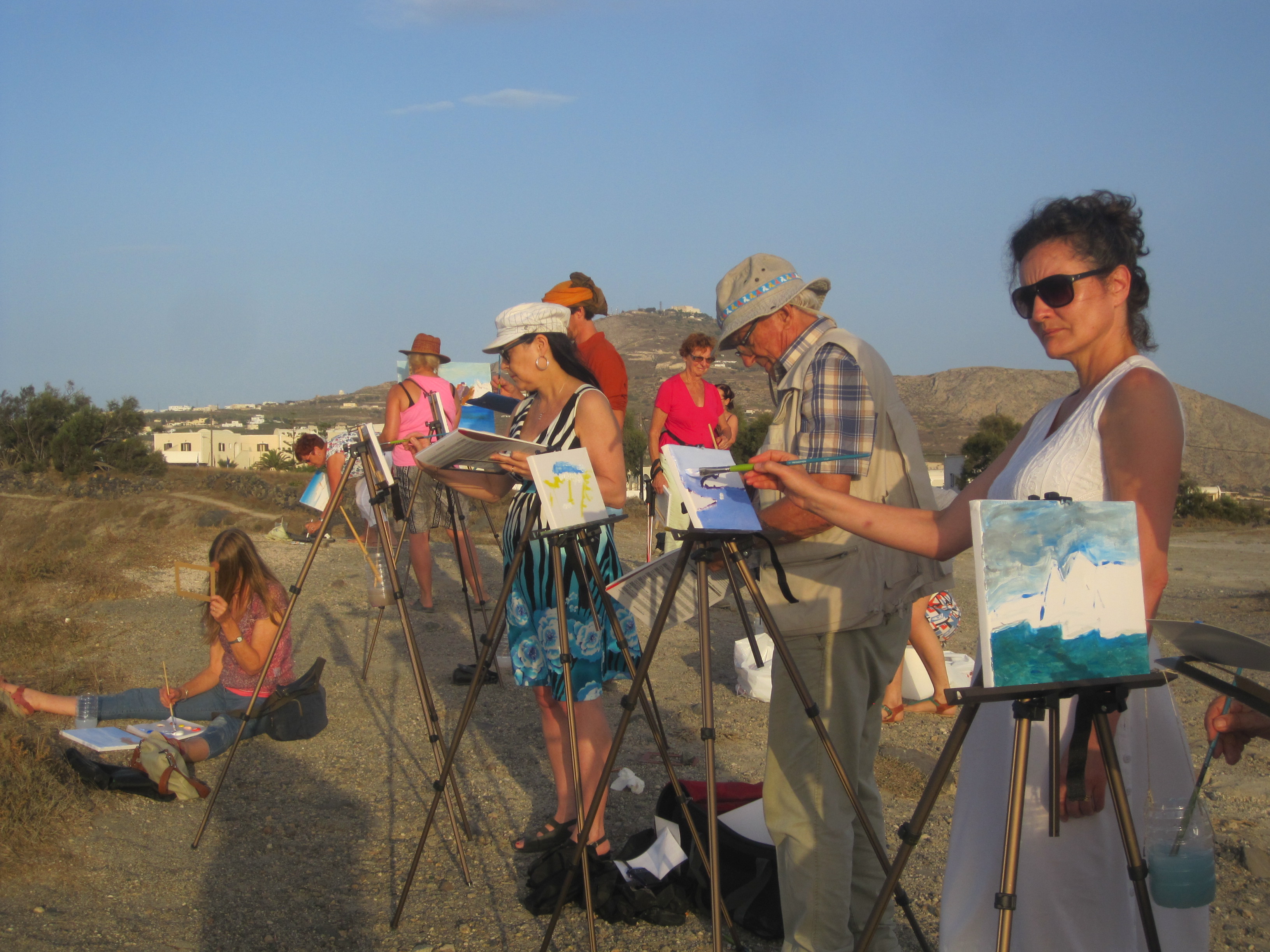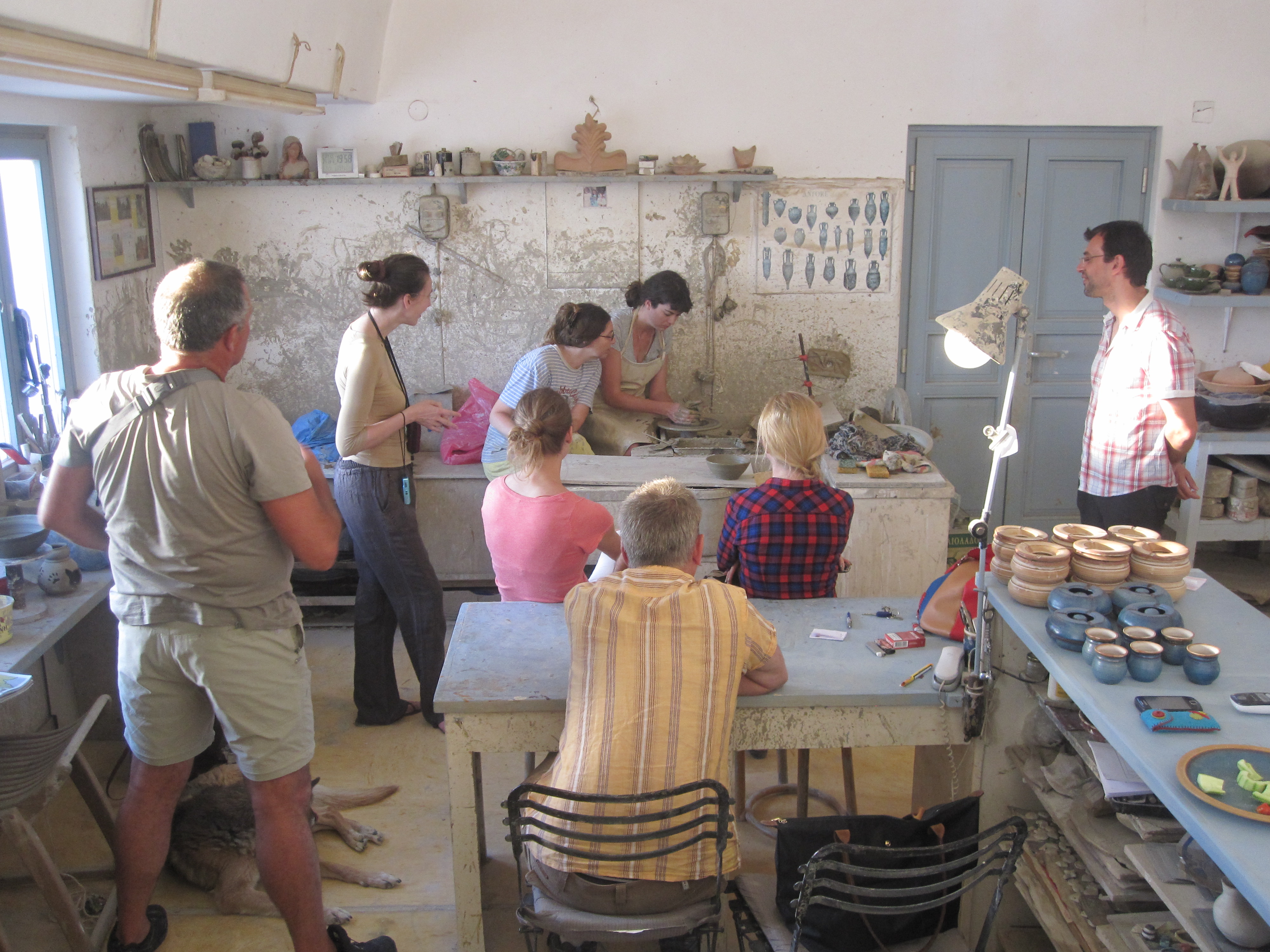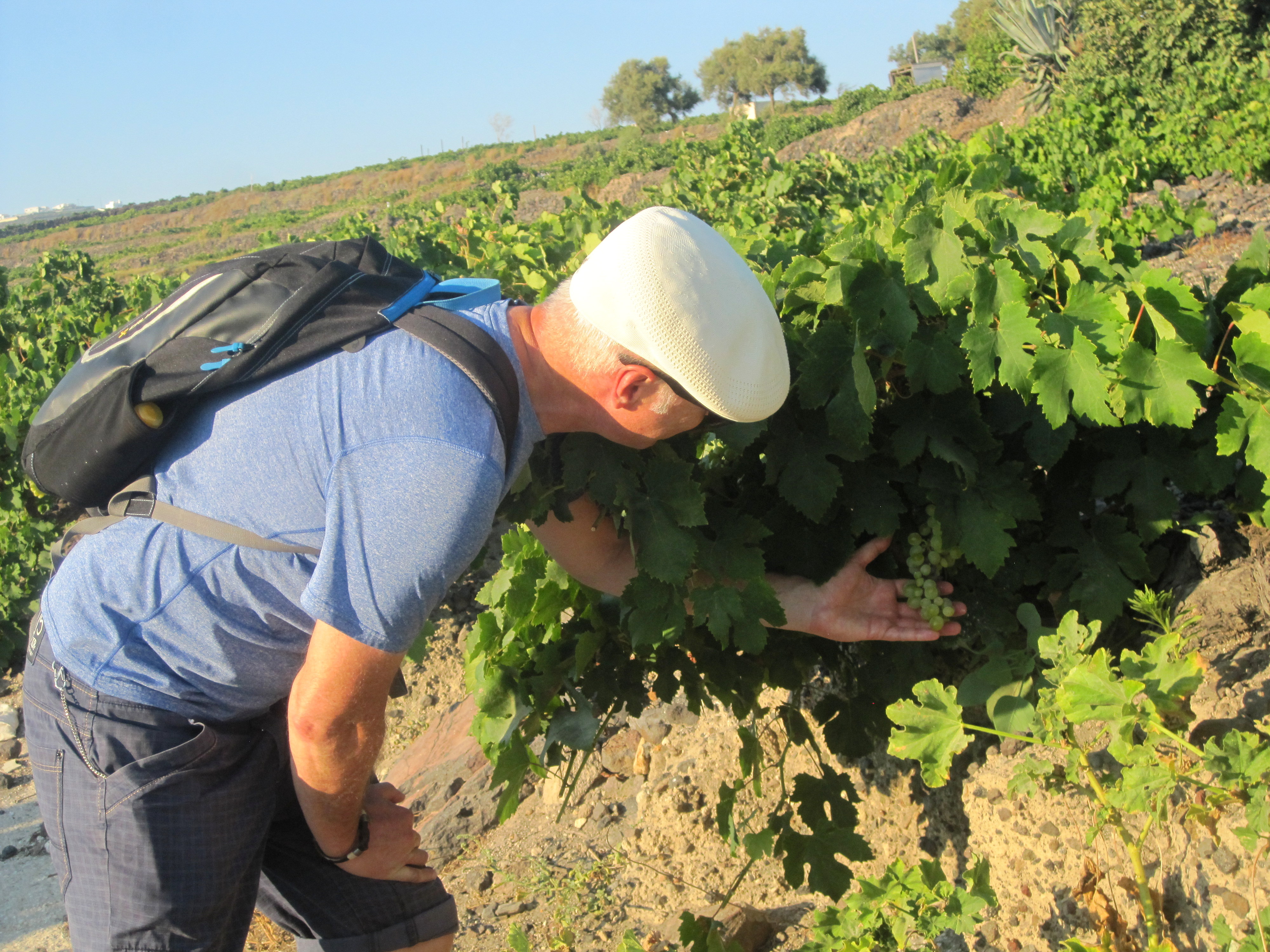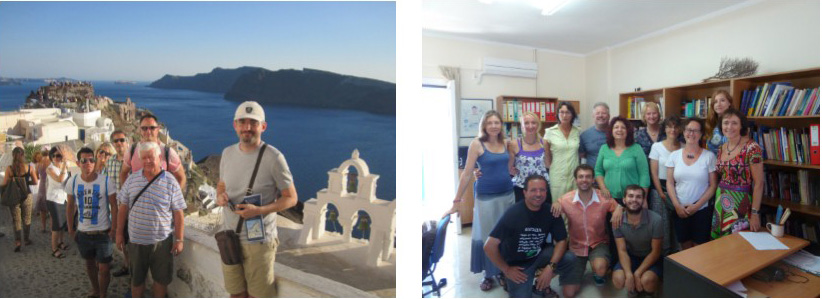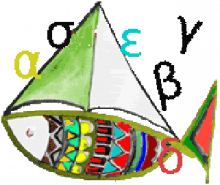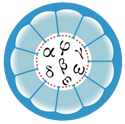Preparation for the Exams for Greek Citizenship
Description
The Hellenic Culture Centre undertakes the responsibility to prepare candidates for the Examinations for Greek Citizenship, which are organised by the General Secretariat of Citizenship of the Ministry of Interior. THE NEXT - AFTER THE FIRST - EXAMINATION DATE HAS BEEN ANNOUNCED FOR NOVEMBER 2021.
The lessons are held online ( platform with educational materials, and Skype ).
The courses offered by the Centre lead to the exams of NOVEMBER 2021 and last 27 weeks: from 8/4/21 to 10/10/21 with a break of 26/4 / 21-3 / 5/21 and 9/8/21 -22/8/21.
Classes with a teacher are done once / week for two hours (120 minutes).
Courses start from:
|
Α’ Cycle |
completed |
07/10/2021 - 25/11/2021 |
|
Β’ Cycle |
completed |
02/12/2021 – 03/02/2022 |
|
C' Cycle |
29/07/2021-30/09/2021 |
10/02/2022 – 31/03/2022 |
We start on 8/4/21 and every 8 weeks, and you can continue to study with us all the activities of the so called Exam Topics Bank. Attention: all topics can only be taught if you attend the entire programme (550+ topics)
What are the Examinations to obtain the Certificate and the process of certifying knowledge on the Greek language, history, and Greek culture for third country citizens?
The Certification of the Greek language, history, and Greek culture is conducted in order to acquire Greek Citizenship of third country nationals, i.e. citizens of countries outside the European Union.
The exams are written on the basis of an Exam Topics Bank, which contains standardised questions. After passing these exams, an oral interview takes place. "Through the Law 4735/2020 the applicant, after obtaining the Certificate, will have, in the final stage, a short interview by a three-member committee of members of the Citizenship Directorates in order to determine the candidate’s social and economic integration. The rules for conducting these interviews will follow a standardised handbook prepared by a joint team of Interior Ministry officials together with the National Transparency Authority. At the same time, every appropriate means will be taken to ensure the provisions of the Code for the benefit of the applicant "as stated by the Secretary General of Citizenship.
The examinations take place in examination centres defined by the General Secretariat of Citizenship, which belongs to the Ministry of Interior of Greece.
These examinations are necessary, if you have all other supporting documents, about which you must be informed in advance by a lawyer.
Who is it for?
- third-country nationals who are at least 18 years old and legally residing in Greece, if they have the other supporting documents
- to recognized political refugees with 3 years of residence in Greece
- to Greek expatriates over 18 years of age
- holders of a long-term residence permit and a second-generation residence permit
- spouses of Greeks with a child and with 3 years of residence in Greece
- immigrants with 7 years of residence in Greece, if they have the other supporting documents *
*ATTENTION! Having already the certificate of Greek (even at a level higher than B1!) obtained after examinations by the Ministry of Education - Centre for Greek Language, does not fall under the conditions of exclusion of any of the examinations. The exam for the Certificate needed for Greek Citizenship is one and includes the Topics: LANGUAGE, history, geography, Greek culture and political institutions.
How can I find out my level in Greek?
To make a free assessment of your level of Greek and the goals you need to set, contact us. You will take an oral and possibly a written test too, and we will help you plan your preparation.
Methodology
After completing your registration with the submission of tuition fees (for 16 hours of course in 8 weeks) we give you access to our online platform, where we have the preparation materials. You study the materials and do the exercises.
Once a week you meet your teacher online via Skype for two hours. You can, if you wish, increase the preparation hours, but it is not necessary at all, since you work alone at home, according to the schedule you have created together with your teacher.
Classes will be held in the evening 20.30-22.30 and in the morning 08.00-10.00
The lessons for this programme are for two hours, 120 minutes.
Where does the lesson take place?
The distance lessons ( online ) are done through the e - learning platform developed by the Hellenic Culture Greek Centre. Once a week for two hours you meet with your teacher and your classmates on Skype.
Are there private lessons?
The lessons are usually group lessons and are based on the programme we have created for this course. Learning objectives are set together with the students.
However, private lessons are possible, after consultation with the Secretariat.
Content
Topics of the preparation programme are the following
- Greek history
- Greek culture
- Political institutions
- Geography of Greece
- Typology of the exam exercises
- Points that need your attention during the Language Exam
- Development of the four language skills (writing, reading, speaking, listening)
- Psychological parameters of the examination process and the interview, which need to be investigated
- Information on the institutional issues concerning the Examinations for the Greek Citizenship
- Detailed schedule for covering the exam material
What teaching materials are used?
Through a series of activities in all four language skills (writing, reading, speaking, listening) based on the exam topics, students are able to meet the requirements of the exam and develop Cultural Awareness .
Specially designed teaching materials are used, which cover the topics of the exams, and the exercises of the Exam Topics Bank, on which the students practice further after the live lessons.
Fees
The group lesson (4-8 students) costs 12 euros / hour and is prepaid for 8 weeks, 192€, and you can, if you want, continue in a new course.
The course with 2-3 students costs 20 euros / hour and is prepaid for 8 weeks, 320 € and you can, if you want, continue in a new course.
The special course online / skype costs 39 euros / hour and must be for at least one hour / week. Prepaid for 5 hours minimum, € 195.
The courses are NOT offered for self-teaching, you can only register if you also do a lesson with a teacher and meet with him / her every week. Use of the platform is free.
You need to enroll in the exam preparation programme, prepaying at least 5 hours if you are taking a private lesson, and 16 hours of synchronous online teaching if you participate in a group or semi-private course.
Teachers
The seminars are taught by our experienced philologists and specialized partners. Responsible for the individualised curriculum and syllabus of each student is Mrs. Ifigenia Georgiadou, who has been teaching modern Greek since 1979. She has developed a methodology for preparing for exams, especially in the production of written language.
Our students have a success rate of over 90% each year in relevant State Greek exams.
Dates
It takes at least 6 months to prepare for these Greek language exams, since of course you are already at the Greek language level B1. So it is best to start your preparation right now if you want to sit the exam in November 2021.
When do the exams take place?
The first exam with the new Exan Topics Bank system have been announced for May 16, 2021. The next one has been announced to take place in six months (November 2021) and will take place every six months.
When do I have to register to take an exam?
You must register and pay the exam fees before the exams (unless you have already paid through the previous exam system) with your VAT number and with a valid residence permit https://exetaseis-ithageneia.ypes.gr/aitiseis/#login
Regional Citizenship Directorates for information https://www.ypes.gr/g-g-ithageneias/cat-building--kentriki-dieythynsi-ithageneias
When do the preparation courses take place?
You will meet our teacher once a week for 2 hours and you will do exercises on our platform yourself all week.
An evening section will be set up - 20:30 -22: 30 p.m. and a breakfast section 08:00 - 10:00 a.m.
Certification
We issue a certificate of attendance of the course that you will do to prepare for exams.
The Center for Greek Culture is officially recognized as a Center for Lifelong Learning and as a language school by the Hellenic Ministry of Education and Religions (EOPPEP code 2101782/2018 and 2308668/2018).
We offer exam preparation courses and other certificates of Greek proficiency. The exams are organized by the Ministries of Education and Interior and are supervised by the Greek Language Center.
How do I enroll in the exam preparation programme?
For more information and an individual interview meeting to analyse your educational needs, contact the Head of Exam Preparation, Mrs. Ifigenia Georgiadou, tel. +306944105484, or email: This email address is being protected from spambots. You need JavaScript enabled to view it. and Skype name: hellenic.culture.centre.
Working language
Greek is the working language in this course. All candidates must have a level of Greek proficiency of at least B1.


